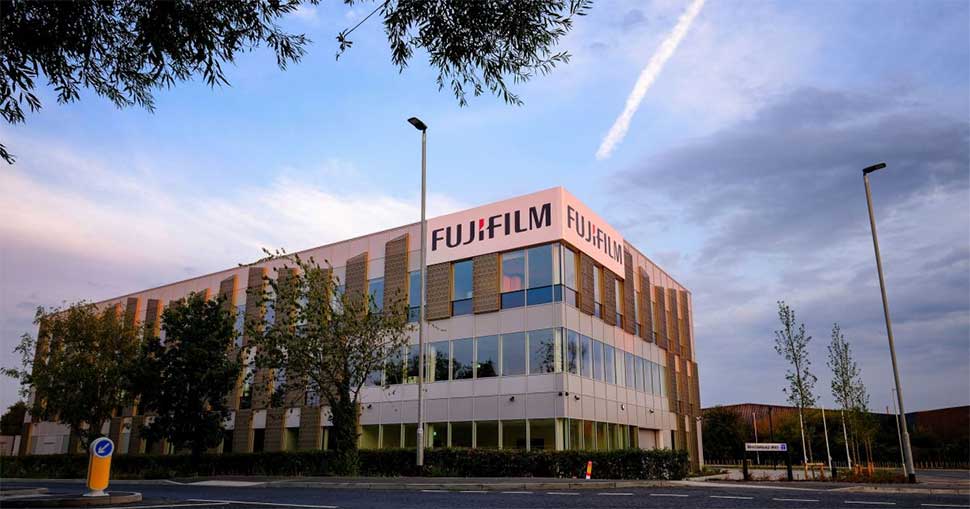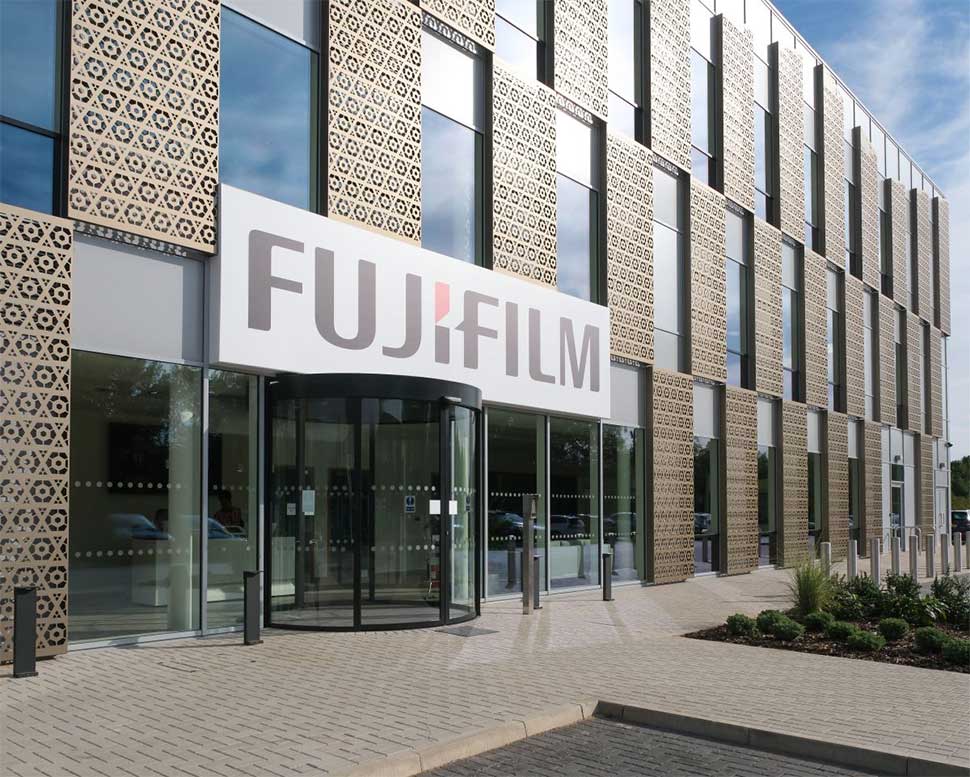Protecting wildlife habitats
In designing the new building, Fujifilm worked with the Wildlife Trust for Bedfordshire, Cambridgeshire and Northamptonshire, one of its corporate charity partners, to keep the environment around its UK HQ site as habitable as possible for plants, wildlife and animals.
For example, the Trust advised on biodiverse landscaping, implementing flowers and plants to maintain habitats for creatures that live on-site, as well as encouraging more wildlife to the surroundings.
Additionally, by installing permeable slabs in the Fujifilm House car park, Fujifilm is able to nurture worms residing in the ground, prevent flooding and help maintain the water table.
Catering further to the wildlife, Fujifilm is in the process of adding bird feeders and bat boxes around the outside of the site, as well as installing bee hotels around the car park, which will provide a nesting space and shelter to bees and mini beasts.
Energy efficiencies
The site’s 80 rooftop solar panels are able to generate up to 63,000 kW of electricity each year, saving an impressive 29 tonnes of CO2 emissions annually. On a sunny day, they collectively generate enough electricity to sustain the whole building without needing to draw energy from the grid.
Meanwhile, the site’s interior is fitted out with intelligent LED lights, which are triggered by motion sensors, turning on when they detect movement and remaining off when rooms are empty.
The temperature in the main areas of the building – all inside areas except offices and meeting rooms – is maintained with a centrally controlled comfort cooling system, which is turned off overnight.
To accommodate Fujifilm’s evolving company fleet, as well as anticipating the shift away from fossil fuel-powered vehicles, the car park at Fujifilm House has 16 charging points for colleagues and visitors to use, and there is capacity to provide double this number in the future as demand grows.
Waste management
A continued part of operating sustainably at Fujifilm House involves reducing waste and recycling, where possible. A waste sorting system, comprised of bins with different coloured lids, enables rubbish to be sorted into general waste, printer cartridges, plastics and cans, and paper and cardboard, meaning it can be disposed of or recycled accordingly.
Steering away from single-use plastic cups on-site has encouraged the take-up of reusable cups, while each water dispenser has a digital counter which tallies up and displays the number of plastic ‘water bottles saved’ during each use.
Naturally clean
Fujifilm has also taken steps to keep its UK headquarters clean and tidy, in an eco-friendly manner. The toilets are flushed with water obtained by a rainwater collection and storage system, and toilet paper is made from completely recycled material. Even the toilet roll dispensers are made from recycled Tetra Pak packaging.
Installed throughout Fujifilm House is Soap2o – one of the most sustainable soaps on the market. The cleaning agent, which is made from biodegradable materials, is sold as tablets which can be added to water to form a liquid soap. Benefits of the soap include its natural (pomegranate and pink grapefruit) fragrance, lightweight delivery compared with bulky and heavy traditional liquid soaps, a reduction of packaging by up to 70% and the elimination of single-use plastic packaging.
The cleaning routine on-site involves an ioniser which adjusts the pH of the water to create a strong alkaline liquid that is suitable for sanitising. After around 24 hours, the ionised cleaning solution gradually neutralises back into water, meaning that waste going down the drain is both neutral and natural. The process of using ionised water as a cleaning solution – also known as stabilised aqueous ozone – means the use of traditional, chemical-based sanitising products is minimised.
Andy Kent, Divisional Manager at Fujifilm Graphic Communications UK, comments: “It’s important for us all – at an individual and corporate level – to take steps to protect the planet. Our new UK headquarters further demonstrates Fujifilm’s commitment to sustainability across our business, and we look forward to developing our approach and innovating for a sustainable future from Fujifilm House.”
To read additional recent news from Fujifilm, click here



